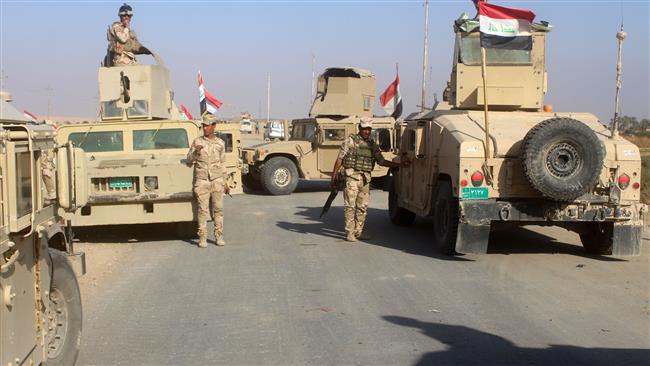
RNA - Ruling coalition MP Husham al-Suhail insists that the Parliament isn’t trying to force any specific timeline on the deal, but wants the government to make it clear, having declared victory against ISIL, when the US-led occupying troops will be gone.
This is welcome news to the long-suffering people of Iraq, particularly after the defeat of ISIL by the allied forces of Iraq, Iran and Popular Mobilisation Units, and because many nations are all making clear their military presence is very temporary. The potential problem, however, is that US has been very public from the start of its 2003 invasion that this is a permanent occupation, and they don’t plan to ever leave.
That potentially brings another showdown between war-party Washington and the Iraqi government, as with the one after the previous US occupation, in which the US failed to get a Status of Forces Agreement and ultimately withdrew. Nor is that all:
A- A list of US military bases and their supported missions, with host nation feelings on the matter, would be exhausting to read, much less compile. Suffice to say, the US military is in a lot of places. It may just be a couple of people or a whole combined combat and command unit. It's a lot.
B- Just like in Iraq, the US has approximately 20 illegal military bases inside Syria at this point, almost all of them in Kurdish-controlled territory. This is a plausible figure. Since the US has no plan to ever leave Syria, it is safe to conclude that it plans to surely use its bases in Iraq to continue the dangerous regime-change campaign against Damascus, which will create diplomatic spat between Iraqi and Syrian governments – a regional disaster Israel will be more than happy to see for its dubious benefit. And the Iraqis are preparing to stand up to this plan.
C- US military bases in Iraq and Syria are not designed to support the national security goal of host nations or overall regional stability. These bases mostly support Washington’s expansionist goals, whether security, financial, relationship, or a combination of all this to also support Israel.
D- There are no post-war basing agreements that are considered strategically legal to counter possible ISIL terrorist attacks. Most of the deployments support bottling up the spread of Iranian-Russian influence across the post-ISIL region. To that end, many troops are placed in permanent bases, using host facilities for short-term missions, either in direct support of combat units or as logistics bases to back terror proxies, separatist militants, and/or target Iranian-Russian forces and their allies.
E- Of note, many terrorist groups near these bases see significant military gains just from the US members based there. When bases in Syria were recently used to support or evacuate terrorist militants and commanders, or to attack pro-Syrian government forces and allies, both Moscow and Damascus protested and implored Washington to insist on it continuing.
F- This is also happening in Iraq, and many bases actually have seen significant local protests for supporting terrorist groups and attacking civilian objects. This is especially common after US forces commit crimes against the local citizens. These disgraceful acts have strategic ripples in many cases, resulting in changes to basing agreements, the latest of which is for the Iraqi Parliament to ask the self-appointed world police to withdraw its occupying troops.
Opened to its full extent, this is indeed what the post-ISIL Iraq needs. There are no basing agreements between Baghdad and Washington. Moreover, the self-appointed world police and its illegal military bases are in no way there to deter sectarian hostility, much less fight terrorism, keep Iraq in one piece, and foster stability in the region. Simply put, they are there to further US interests.
The real crux of the problem is that the US also continues to build up its military because it sparks higher spending on defense and arms from the countries in the region, leads to further sectarian conflicts and discord, diverts money to military spending, and reduces what a nation is going to spend on many other programs, including, in the case of Iraq and Syria, to rebuild themselves after the ISIL war. This alone can be destabilizing in these countries.
847/940